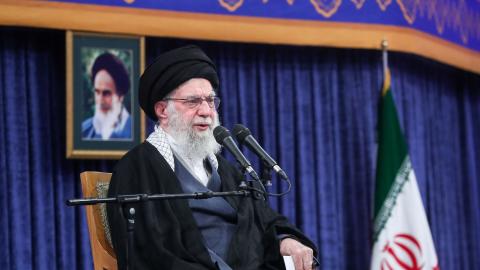Now that they've swept up the confetti following Barack Obama's historic election victory, pride will quickly turn to sympathy for the new president and the challenges he now faces. The first will be to assemble a new administration; the second will be to govern.
Every administration takes shape at its own pace, but a few benchmarks based on previous administrations are possible. President-elect Obama should name his core White House staff by the end of November (former Clinton aide Rahm Emanuel will be chief of staff), and the 15 members of his cabinet by the end of December. President George W. Bush named some of his cabinet in early January.
Congress can be expected to confirm several of the new cabinet members in a special session on Inauguration Day, Jan. 20. Seven of Mr. Bush's first term cabinet members were confirmed the afternoon of his first inauguration in 2001.
Then the administration must find, vet, and nominate roughly 3,302 individuals to staff political positions, and each of these must win confirmation by the U.S. Senate. Most presidents struggle with this task at first, and inevitably make a few mistakes. The friends who helped get you elected may not be ideally suited to make policy or to manage large organizations within the federal government. Others have undisclosed skeletons that come out of the closet during confirmation hearings.
Reluctantly or not, a new president often selects proven veterans of previous administrations who have won confirmation before, a nod to the Washington establishment that the American public loves to hate.
In recent years, Senate confirmation has become cumbersome and slow. When Franklin Delano Roosevelt took office in 1933, it was possible to speak about an exciting "first 100 days" setting the tone for a new administration.
Today, the defining period for a new administration is the first 18 months, before congressional midterm election campaigns provide the first referendum on the performance of the administration. One reason for the slower start is confirmation: the last of Mr. Bush's political appointments won confirmation 13 months after inauguration.
Congress slows down a new administration's post-election momentum, but it also frequently contends with a new president to set the Washington agenda. President Jimmy Carter was elected with a Democratic Congress that claimed as much post-Watergate moral authority to govern as did the new president.
Congressional leaders took control of the agenda by taking up Mr. Carter's election themes and crafting legislation to translate them into policy. Most of the time, when Mr. Carter and his Congress disagreed, congressional leaders won the day. As a result, Mr. Carter gradually shifted his energies to foreign policy, where commanders in chief have a freer hand. President Bill Clinton also came to office in 1993 with a Democratic majority in Congress, but he successfully fought to control the agenda; the Republican takeover of the House of Representatives in the 1994 midterm elections was one result.
The 111th Congress has some very strong and experienced Democratic party leaders who could prove more than a match for the 44th president of the United States. In the House, Speaker Nancy Pelosi, John Murtha and others return with a stronger majority. In the Senate, there is Majority Leader Harry Reid, Charles Schumer, Richard Durbin, and of course Hillary Clinton.
One silver lining for president-elect Obama and congressional Democrats: Republicans retained enough seats in the Senate to block legislation by invoking the filibuster. With a reduced number of senators, Republicans will not be able to use this tactic often -- independently minded senators are notoriously difficult to whip -- but just enough to allow Democrats to resist pressure from activists on the hard left to adopt more radical policies than most Americans would support.
For Canada, it will be important to watch how the new administration takes shape. Two positions will be especially important: the next secretary of homeland security and the next U.S. ambassador sent to Ottawa. The Department of Homeland Security is the gatekeeper, controlling U.S. market access for a country that relies on that access for its prosperity. A good DHS secretary could help to mitigate transitional problems associated with new policies, inspection gadgets, infrastructure construction, and personnel.
The next U.S. ambassador to Canada will be crucial to the future of the bilateral relationship. The last four U.S. ambassadors in Ottawa (including David Wilkins, the current one) have been outstanding, not only because they represented the United States well to Canadians, but also because each had a prior relationship with his respective president that allowed him to call in presidential attention and help to resolve Canada's concerns when it was most needed.
The U.S. election has clarified who will lead the United States. The appointments made in the coming months will reveal how president-elect Obama will lead, and provide an early indication of how well he will do so.


















